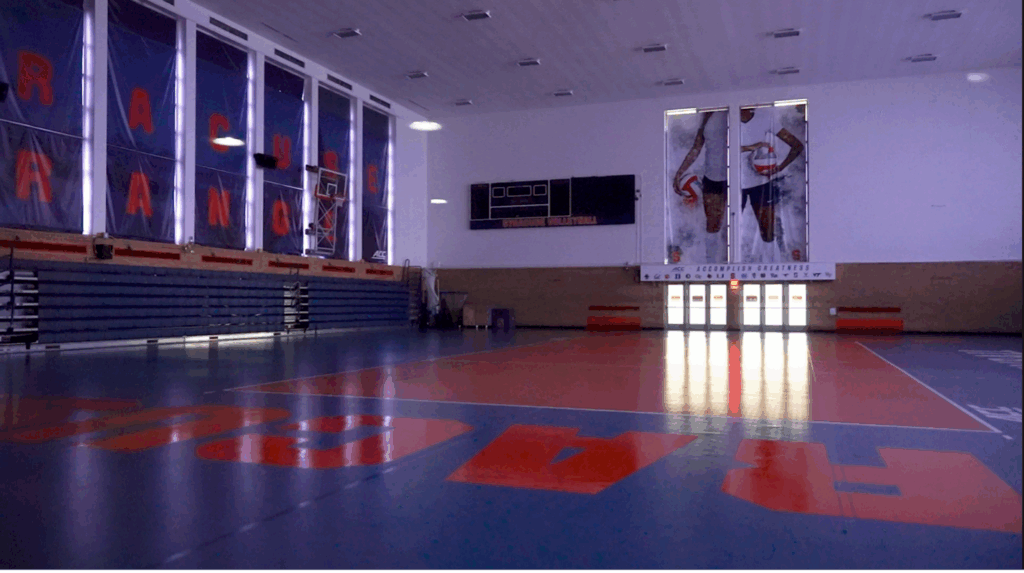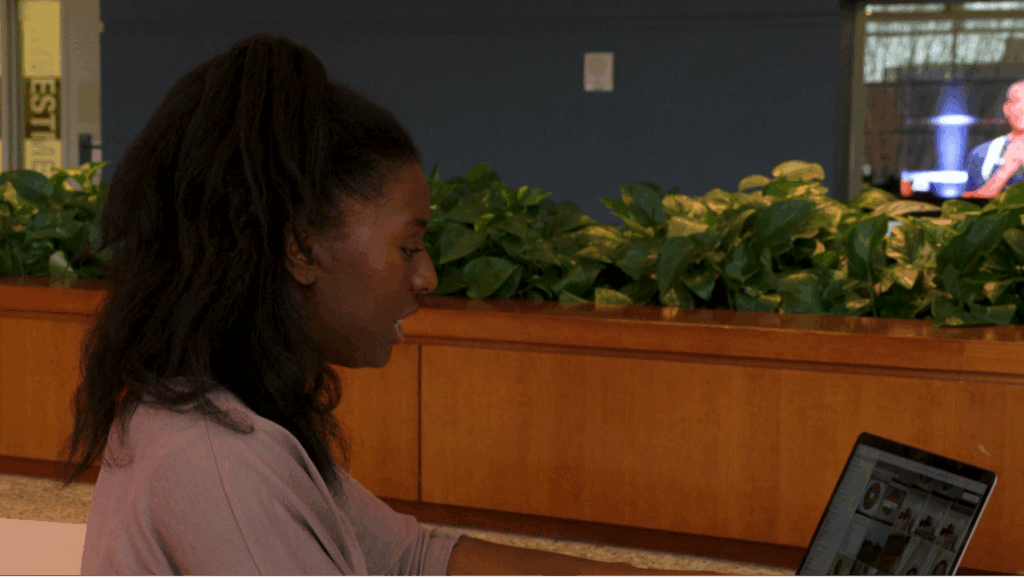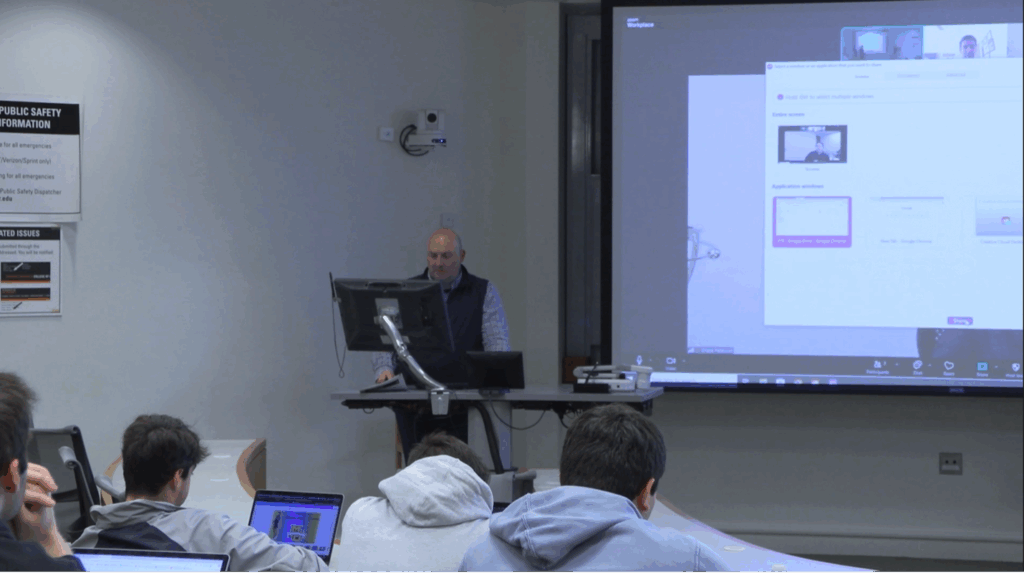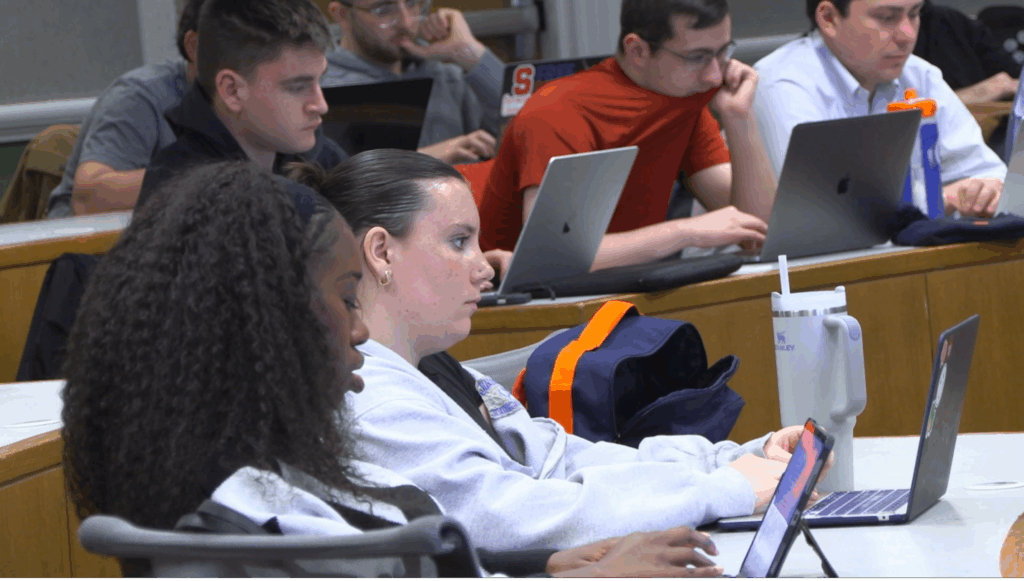VIDEO TRANSCRIPT
Geraldine Paglia (Reporter): The house versus the National Collegiate Athletic Association has been an ongoing lawsuit aimed at how the NCAA has handled money for years. Sydney Moore, college sports expert, breaks down the essence of the case.
Sydney Moore (College Sports Expert): At its core, the case is an antitrust case, which means it really is about free market and finances.
Geraldine Paglia (Reporter): For decades, the N-C-double-A barred athletes from profiting off their name, image, and likeness, better known as NIL. But since that rule changed in 2021, many athletes have stepped into new opportunities. The case argues that former college athletes deserve a cut of the billions of dollars they potentially lost out on before they were allowed to profit under the new NIL rules.
Sydney Moore (College Sports Expert): When decisions like this are being made, student athletes deserve to be part of that, you’re making decisions that affect our lives directly, and you’re also asking us to make decisions or enter agreements that are going to affect our lives.
Geraldine Paglia (Reporter): Moore is a former Cornell and Syracuse volleyball player and a leading voice in college athletics, using her platforms to educate and empower athletes as college sports evolve. David Meluni, associate teaching professor at Falk College of Sport, is also helping shape the national conversation with the first NIL course in the country.
David Meluni (Associate Teaching Professor at Falk College): If you don’t understand something, you’re going to get burned or you’re going to miss out on an opportunity, right? And I think that’s where our students, we have about 80 students across two classes, and they’re activating real-life deals through a great partner of ours called Clean Connect. We had a lawyer that was on that’s working out of the state of Utah and activating deals across some colleges.
Geraldine Paglia (Reporter): He stresses the difference between true NIL, where athletes monetize personal brand deals, and what’s now evolved into pay-for-play, where deals are used to keep talent. Under the new model, athletes will still need to go through the NCAA’s clearinghouse for NIL deals.
David Meluni (Associate Teaching Professor at Falk College): Schools are going to have to navigate this. They’re going to have to put values on athletes. They’re going to have athletes as independent contractors. They’re not gonna be employees. Athletes are gonna have to understand that if you’re the star women’s point guard and you’re gonna get $500,000, you’re gonna have to put aside a good 40% of that because you’re gonna have to pay taxes.
Geraldine Paglia (Reporter): Schools will have to rethink how they run their athletic departments. That includes roster caps, scholarship rules, and possible revenue-sharing with players. The House v. NCAA case will be finalized July 1st of this year, and one thing is clear. The rules of college sports are being rewritten in real time.
Sydney Moore (College Sports Expert): Understanding that this is going to change and that there’s a lot of research and due diligence and thought that needs to be put behind a lot of these decisions is super important.
Geraldine Paglia (Reporter): But for advocates like Sydney Moore and David Meluni, it’s not just about making history, it’s about making sure others understand it, too. Geraldine Paglia, NCC News
Syracuse, N.Y. (NCC News) – The NCAA is facing one of the most significant legal challenges in its history, and the outcome could fundamentally reshape college sports.
The class-action lawsuit House v. NCAA targets the organization’s long-standing restrictions on how college athletes could benefit financially from their talent, likeness and marketability. At the heart of the case is a simple, powerful claim: College athletes were unfairly denied the right to profit from their name, image and likeness, commonly known as NIL, before the NCAA began allowing such deals in 2021.

Syracuse University Volleyball Court, where many student-athletes have started their collegiate careers @ 2025 Geraldine Paglia.
Now, with a $2.8 billion settlement approved, the issue is not only whether the NCAA owes athletes back pay, but how the entire model of college athletics will need to evolve.
Sydney Moore, a former Division I volleyball player and current Syracuse marketing graduate student, has become a prominent advocate for educating athletes about their rights in the new era of NIL.
“At its core, the case is an antitrust case, which means it really is about free market and about finances,” Moore said. “Those who are held accountable for the solutions will also be held accountable for lots of other laws like gender equity or Title IX.”
The settlement will provide compensation to current and former athletes dating back to 2016 who were denied NIL opportunities under the NCAA’s previous rules. In addition to financial reparations, the agreement outlines major structural reforms that could reshape how Division I programs operate nationwide.

Sydney Moore, former collegiate athlete and college sports advocate @ 2025 Geraldine Paglia.
A key element of the NCAA’s approved settlement is the introduction of an “opt-in” system. Under the terms, schools in non-defendant conferences must decide annually whether to opt in, agreeing to provide enhanced compensation to athletes that goes beyond previous limits.
Opting in includes offering direct name, image and likeness (NIL) payments, expanded scholarship packages and other additional benefits. Schools that do not opt in will remain limited to the NCAA’s 2024–25 scholarship restrictions and cannot exceed existing roster caps.
The decision carries significant financial and competitive implications, and some athletes believe they should have a say in how those decisions are made.
“When decisions like this are being made, student-athletes deserve to be part of that,” Moore said. “You’re making decisions that affect our lives directly, and you’re also asking us to make decisions or enter agreements that are going to affect our lives.”
Colleges must also determine how to manage roster sizes, distribute scholarships and allocate new funds fairly among athletes. Under the settlement, if a school offers new NIL payments to athletes in one or two sports, all NCAA sports at that school must comply with the same model.
“Not every student-athlete receives athletic scholarships,” said Moore. “NIL can be free coffee at a café if you want it to be. It can also be your first step into brand building, negotiation and marketing yourself.”
This has raised concerns among athletic directors and administrators. One worry is that Olympic and non-revenue sports could be negatively affected as schools redirect resources to high-revenue programs like football and men’s basketball.

David Meluni, an SU Associate Teaching Professor, educating students in the first NIL course in the country @ 2025 Geraldine Paglia.
This has raised concerns among athletic directors and administrators. One worry is that Olympic and non-revenue sports could be negatively affected as schools redirect resources to high-revenue programs like football and men’s basketball.
David Meluni, an associate teaching professor at Syracuse University’s Falk College of Sport and Human Dynamics, is helping prepare future sports professionals for the evolving landscape.
“Athletes are going to have to understand that if you’re the star women’s point guard and you’re going to get $500,000, you’re going to have to put aside, you know, a good 40% of that because you have to pay taxes. You’re not an employee,” Meluni said.

Students in Professor Meluni’s course listening and taking notes during students’ presentations @ Geraldine Paglia.
As Meluni explains, many athletes are still learning the difference between legitimate name, image and likeness deals and what has evolved into “pay-for-play” offers used to recruit or retain talent. Under the new model, athletes will still be required to report deals exceeding $600 to the NCAA’s clearinghouse.
“If people don’t know your name, they certainly aren’t going to know what you look like, which is your image, and then how can you expect to activate any sort of likeness?” he said.
The final court approval hearing took place on April 7. With the settlement now officially approved, changes to college athletics will take effect starting in the 2025–26 academic year and will remain in place through at least 2035.
